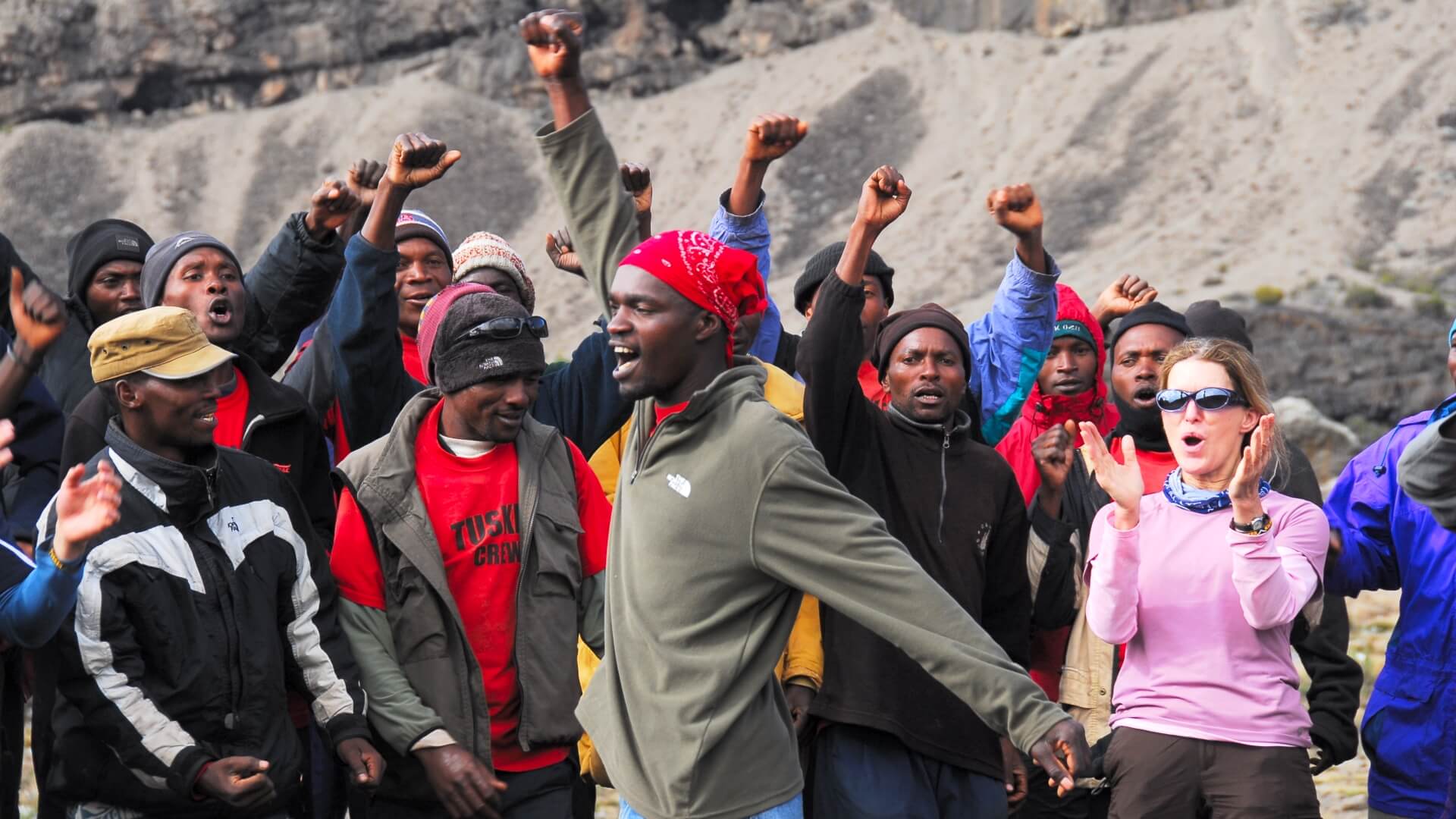Most of us like to do our travel homework by reading guidebooks; watching videos and trolling the Internet for trekking trip intel. That’s well and good, but there is no substitute for actually being there and interacting with the locals to savor a country’s special nuances. Here are a few of our discoveries.
Kilimanjaro is More Than a Mountain
We go there to climb an iconic volcanic mountain, but on the way up there is a fauna-filled jungle on the lower slopes. Handsome birds like Hartlaub’s Turaco in its green and blue camouflage can be found in a rain forest that harbors several species of monkeys and the ferocious honey badger. Even lions avoid tangling with them.
Mongolian Women Rock and Rule
Genghis Khan might have the most street and battlefield cred in Mongolia, but today women rule. They hold 70 percent of the skilled jobs, but also get their hands dirty working as tour guides, drivers and are not bashful to gut whatever needs gutting for tonight’s supper. Show them respect – partially because they are tougher than you.
We’re in Nepal – Keep Your Hands to Yourself
Kathmandu may sound like a romantic destination, but signs of affection in public are strictly verboten. Not even married folks hold hands in public and its bad behavior for teens to hang with the opposite sex unchaperoned.
Kilimanjaro’s Buzz-Kill Zone
You’re on vacation and you want to let your hair down by having a shot of tequila on your Kilimanjaro climb. If your guide sees you imbibing, chances are he will chew you out because altitude and drinking don’t mix. Wait until you’re back in Moshi to have that celebratory libation.
Iceland’s a Movable Art Fest
Icelanders love to paint their cars/trucks and their imagination has no bounds. Large paintings of blondes, scary skulls, seals and characters from the Viking sagas adorn vans and smaller cars. It’s a high bred form of graffiti that blends well with Iceland’s volcanic scenery.
Are they Speaking Patagonian?
Some lingo in Patagonia can’t be found in your pocket phrase book. Although Spanish is the official language in Patagonia don’t be surprised to hear indigenous Mapuche, as well as Patagonian Welsh and more discernible German and Italian. Patagonia’s people are as diverse as the terrain and cling to their languages.
Don’t Coddle a Mongolian Horse
Short, wily and indefatigable, Mongolia’s horses have been carrying riders into the back-country for centuries and that’s where they are most comfortable free ranging most of the year. They may be the least coddled horses in the world, but once they are comfortable with you, they are very reliable. And they don’t eat carrots. Riding a Mongol horse is thrill on Tusker’s Mongolia Nomad Trek.
Iceland – a Banana Republic
Iceland is geothermally heated greenhouses are not to be underestimated. They provide basic veggies but also some exotic fruit. Bananas have been cultivated in them since the 1930s with a rare strain that takes 18 months to fully flourish because of the short summers and long winters. Iceland’s Agricultural University grows them and also dabbles in Mexican tomatillos. See for yourself on Tusker’s Iceland Highlands Trek.
Step Lively, You’re in Ulaan Bataar
It doesn’t take much to trigger an international incident in Ulaan Bataar, Mongolia’s capital. Stepping on a local’s foot is like declaring war. Immediately shake hands with the offended person to assure them it wasn’t meant intentionally. If someone steps on your foot, smile nicely and find your tour guide for help.
Kilimanjaro is So iconic; I Don’t Need to Climb It
There are about 40-50,000 tourists annually who travel to Kilimanjaro to climb to the summit. Statistics are not kept for the thousands who show up just to see it from the foothills. They are satisfied to see the summit and hike in the low elevation forest at their own pace and not take the risks inherent in a high altitude climb. It’s sort of like seeing the Eiffel Tower from your hotel room and not making the pilgrimage up a million steps with the hordes.
Not climbing Kilimanjaro doesn’t make sense to us, but hell, it’s a big world with all sorts of people and there are some things we will never understand. Just accept the mystery.



